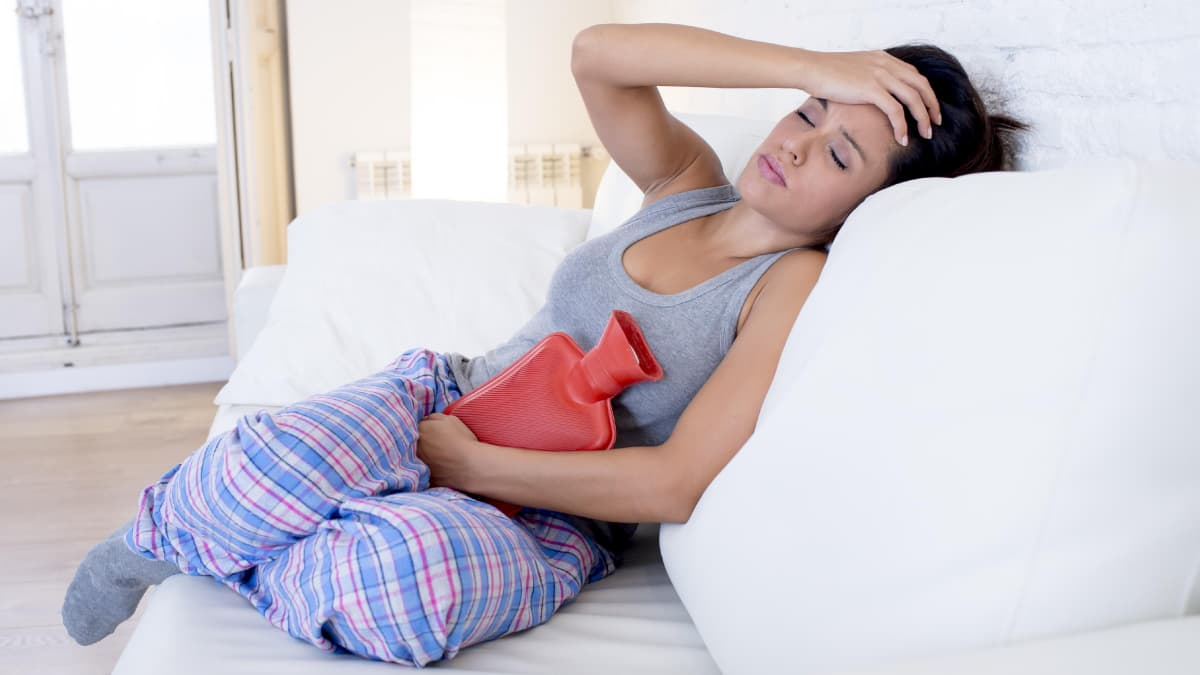Menstrual or premenstrual discomfort begins on Day 1 of your cycle with the onset of your period.
Some women suffer from water retention, breast tenderness, and gas.
Others tire easily and crave sweets.
Some are troubled by anxiety and irritability and are prone to bad cramps.
The hormones that control menstruation are estrogen and progesterone, and when they begin to rise, they affect the central nervous system.
They normally work together, but if estrogen levels rise it can leave a woman feeling anxious and irritable. If progesterone rises a woman can feel depression and fatigue. Try some of these suggestions for relief.
Cut out caffeine
If you get anxious or irritable during your premenstrual period, eliminating caffeine entirely may stop the problem.
However don't go cold turkey during the two weeks prior to your period as it may make you feel edgy.
Instead, start cutting out caffeine during a week in your cycle where you feel better.
Eat magnesium rich foods
Whole-grain breakfast cereals and vegetables are high in magnesium, a mineral that can help smooth out contractions of the uterine muscle, the cause of menstrual cramps.
Magnesium also helps with irritability, bloating, swelling of the face, breast tenderness, and gas.
Try vitamin B6
Vitamin B6 works along with magnesium to combat the same problems.
Try between 100 and 300 milligrams of B6 daily but do not exceed 300 milligrams a day to avoid B6 toxicity.
Breathe deeply
Practice inhaling and exhaling slowly and deeply.
Shallow breathing, which many of us do unconsciously, decreases your energy level and leaves you feeling tense, making menstrual pain worse.
Take ibuprofen for cramps and indigestion
Non-prescription ibuprofen (such as Advil, Nurofen etc.) may help relieve your cramping uterus and aching legs, back and head.
Prostaglandins, hormone-like substances, are naturally high when you begin your period because their job is to help your uterus contract and expel menstrual fluid.
Women with cramps have abnormally high levels of these hormones, causing the uterus to contract harder and longer than normal and creating the pain.
Ibuprofen and other prescription antiprostaglandin drugs help limit the production of prostaglandins.

